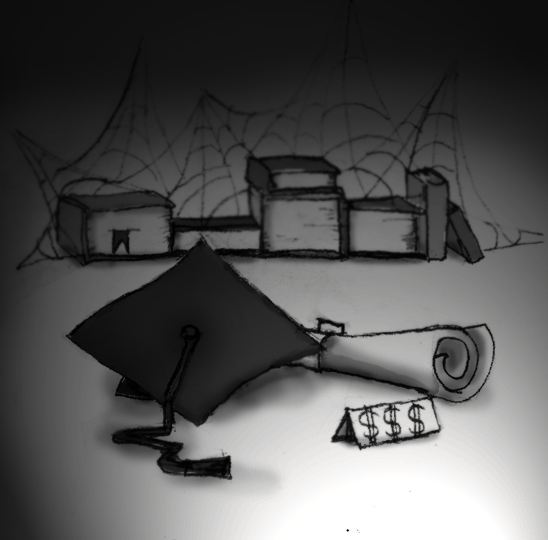The take away lesson?
 Something out of the ordinary happened to me recently at Gustavus. I was sitting in a seminar, listening to one classmate react to another’s point when I noticed something strange was taking place. All around me my peers were eagerly conversing as if interested in what was being said and genuinely curious as to what idea might be brought up next. I suddenly realized that I was enjoying myself, and my classmates were apparently enjoying themselves, too. An unfamiliar feeling came over me: I felt as though I was getting my money’s worth.
Something out of the ordinary happened to me recently at Gustavus. I was sitting in a seminar, listening to one classmate react to another’s point when I noticed something strange was taking place. All around me my peers were eagerly conversing as if interested in what was being said and genuinely curious as to what idea might be brought up next. I suddenly realized that I was enjoying myself, and my classmates were apparently enjoying themselves, too. An unfamiliar feeling came over me: I felt as though I was getting my money’s worth.
This sensation alarmed me for several reasons. First, I was struck by the irony that my conscious appreciation for my class had caused me to become distracted and lose track of our conversation. Second, and more importantly, I was disturbed by how unfamiliar this feeling of intellectual gratification was.
I don’t think I’m alone in appreciating the rarity of this feeling. Think of how many times you’ve noticed, or even been, that student hoping not be called on, sitting stock still, hoping that professors can only see movement. One would think that — given the premium we pay to attend this college — there would be more vocal dissatisfaction with the atmosphere of disinterest that regularly saturates the air during class conversations. But there’s not.
Instead, the typical gripe heard on campus focuses on teachers that are too tough on their students. As a senior, I’ve had a few classes with professors that have had what I consider to be disproportionate expectations of their students, and I can sympathize. It’s stressful to enroll in a class only to suddenly find out you’re expected to work hard for a grade you’d usually complain about.
If I rise to meet the challenge, however, I usually find the outcome of these classes to be invigorating. At worst, I walk away with a grade to complain about, and my GPA takes a hit. At best, I’ve earned the satisfaction of overcoming a demanding trial and have had the opportunity to learn extensively about my field of study and myself. In either case, and what’s most important, is that the experience is memorable. Isn’t that what we’re paying for? For the opportunity to have our intellects challenged and for a learning experience we will retain for years to come? Well, no, not really.
Students part with thousands of dollars and several years of their lives for a college education. Still, many of them work tirelessly to make it the least memorable academic experience it can be, so long as it ends with receiving a college degree. Never mind what that degree is intended to stand for, and why it should afford students upward mobility in the professional world. What’s important is that mobility, and students will pay tuition to earn it. When stripped bare, this is a disturbing transaction to look at: the right to make a higher level income is for sale at a price only affordable to those already situated in society’s upper echelon.
The Gustavus community is progressive, and its members take social justice pretty seriously. As a member, it is difficult to view this institution as an instrument of social inequity, but that is exactly what is left when its academic faculties are disregarded. Thankfully, every tool necessary to make this an academic experience worth every penny invested is in place and waiting to be used. The only piece that’s missing is an eager student looking to get more for their money than the world’s longest, most expensive beer pong lesson.
